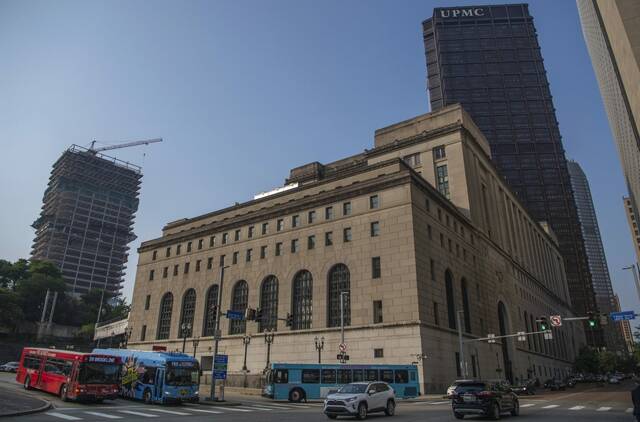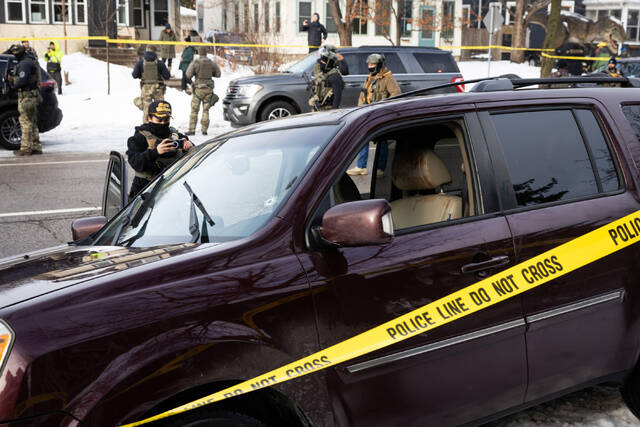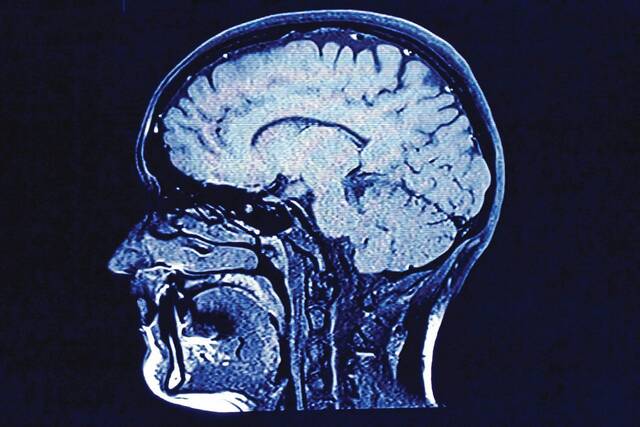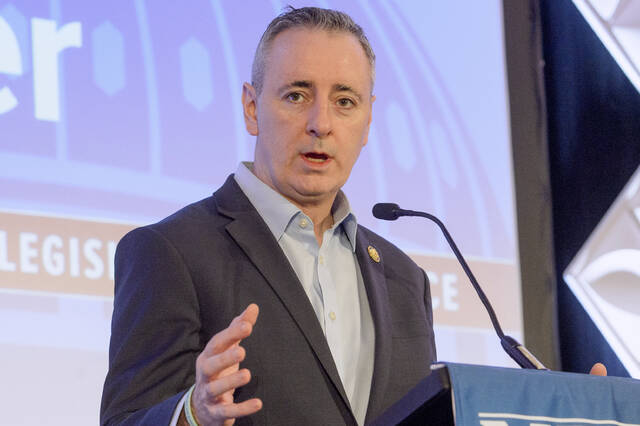The justice system is an odd balancing act.
It must be impartial, yet it weighs more than just guilt and innocence. It also takes into account harder-to-quantify qualities like remorse and regret, grief and loss — and perhaps the hardest of all, forgiveness.
We are told to forgive and forget, but the law isn’t that simple. There must be atonement. There must be acknowledgment. And the court simply does not have the power to offer absolution.
The terrible weight of that burden is being shouldered in Pittsburgh with the trial of Robert Bowers, the man charged with 63 counts in the synagogue shooting that stole the lives of 11 people at worship on Oct. 27, 2018.
For weeks of testimony, the accounts of that Saturday morning have shown the horror that victims suffered and survivors continue to endure.
“I just laid on the floor and didn’t move in case he came back,” said Andrea Wedner, who described how her arm and hand were reduced to a painful mass of shredded, bloody meat.
But Wedner couldn’t move. She didn’t want to attract attention and wouldn’t leave her mother, Rose Malinger. At 97, Malinger was the oldest victim killed.
“I kissed my fingers and I touched my fingers to her skin. I cried out, ‘Mommy,’ ” Wedner told the court.
It is not just hard to ask someone about forgiveness in a case like that. It is almost cruel to place that responsibility at the feet of those most hurt — physically and emotionally — by a crime.
And yet asking about the depth and breadth of such wounds is part of any sentencing process. With the Bowers case, however, it is doubly so because the capital case has two phases.
First, there is a determination of guilt. The prosecution rested its case Wednesday, and closing arguments were held Thursday, when the case was finally given to the jury for deliberations.
If they return a guilty verdict, there will be a week’s break. Then jurors will return to hear arguments for the death penalty.
That’s when the real measure of the pain will be drawn out, both by arguments to mitigate the sentence because of the defendant’s mental state and by counters that the agony inflicted doesn’t merit mercy.
The word “forgiveness” may never be brought up in court. It has already been brought up by those left behind.
“There can be no forgiveness,” said a statement from New Light Congregation, one of the three congregations that made its home in the Tree of Life synagogue in Squirrel Hill. “Forgiveness requires two components: that it is offered by the person who commits the wrong and is accepted by the person who was wronged. The shooter has not asked, and the dead cannot accept.”
In a 1999 book, “Truth Versus Lies,” Ted Kaczynski spoke of forgiveness. The man known as the Unabomber, for a 17-year series of bombings that killed three and injured 23 more, detailed his conditions to forgive the brother who turned him in to the FBI. He did not speak of regret. He said his actions were justified.
Kaczynski was represented in his federal trial by Judy Clarke, one of the attorneys representing Bowers. Kaczynski died by suicide Saturday at the age of 81, 25 years after his conviction.
A courtroom will never be the best place to measure forgiveness. It is often barely able to determine guilt.
The court’s job is to enforce the law, and the law says some things are immeasurably wrong — whether anyone forgives them or not.








